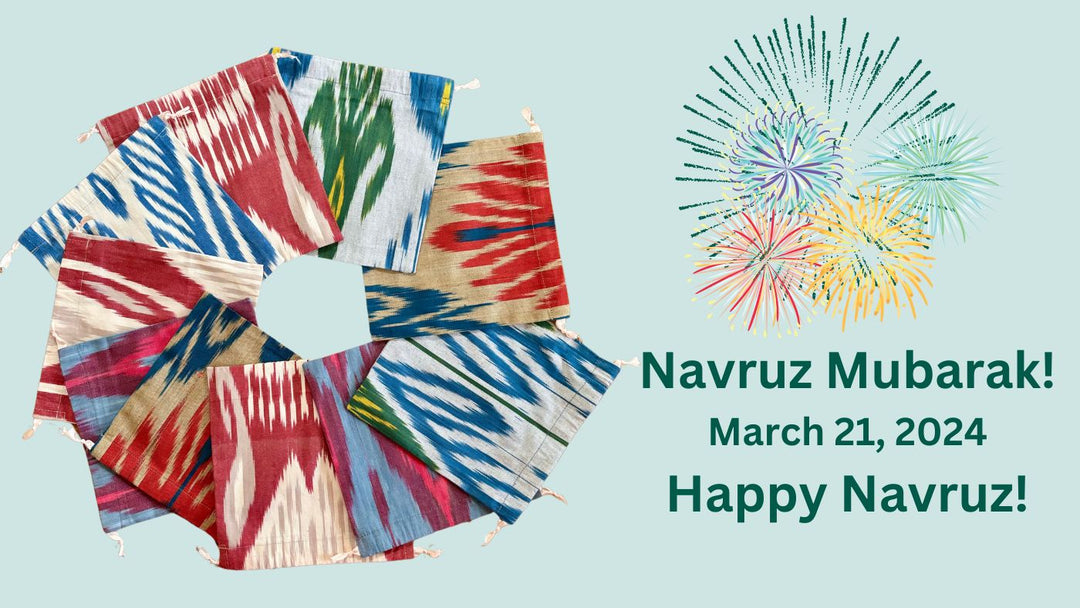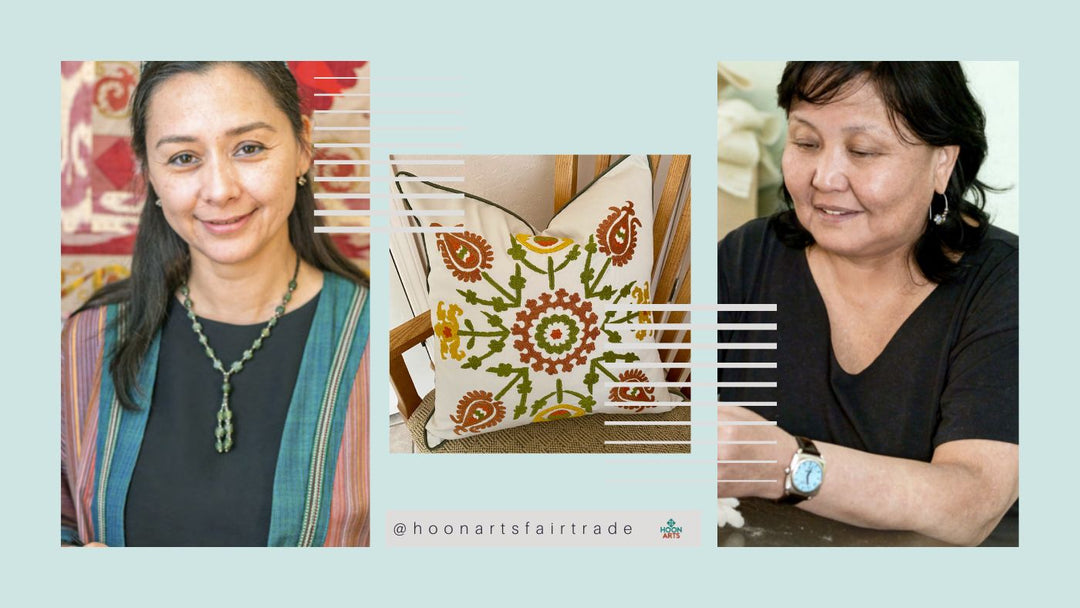I first became formally involved in the fair trade world about 10 years ago. I was an outreach intern at Ten Thousand Villages in Asheville, North Carolina during my last year of undergrad, working to expand awareness of both the fair trade movement and the specific fair trade storefront located downtown. I had a vague idea of fair trade before this, but it wasn’t until I started giving regular presentations at local middle schools, high schools, and community centers as part of this role that it struck me how impactful the core of this movement is.
The central pillars of fair trade, or the 10 principles as described by the Fair Trade Federation, are all about relationship-building, equity, and envisioning alternative socioeconomic systems that work for everyone. Simplified for my presentations to younger kids, it’s about fairness, trust, responsibility, and knowing where what you buy comes from and who made it. Almost all of the kids I spoke with seemed to understand this intuitively.

Left: Modeling fair trade clothing and accessories from Global Mamas and BeadforLife in Asheville in 2011; Right: Volunteering at an event for HoonArts in Albuquerque in 2017
In recent years, along with my work at HoonArts, I have become more involved in the global climate movement. I volunteer with the Women’s Earth & Climate Action Network as part of their WomenSpeak database research team - an amazing resource documenting women around the world working on climate solutions. There is natural crossover between the fair trade model and the ambitious vision many climate activists and leaders are building of a world that is sustainable for future generations. Of course, fair trade is not a perfect model in itself and many fair trade businesses and organizations have room for improvement when it comes to environmental sustainability and climate action. From my experience, this can be for a variety of reasons, such as artists and producers in remote areas without access to all-organic materials, or the fact that many fair trade vendors are small businesses with limited capacity to become carbon neutral in their everyday practices at this time. However, fair trade emphasizes environmental stewardship and responsibility, and there are many ways the two movements overlap and support one another…
![]()
Fair Trade logos with the UN Sustainable Development Goal #13 logo for Climate Action
5 Crossovers Between Fair Trade & Climate Action
1) Conscious decision-making.
Being a genuine participant in fair trade or climate action involves being intentional and making conscious choices. Whether as an individual, a family, a business - or at the larger community or institutional levels - the small and big decisions add up to make a difference in the lives of people across the world, not to mention the health of our planet as a whole. The ripple effect from these decisions is tremendous - and we need much more of it! Although there is a lot of work left to do, more people and organizations continue to participate in these global movements each day through their everyday intentional decisions.
2) Community impact.
Social justice is racial justice is climate justice. The intersections between social, economic, and political issues have never been more apparent. With inequality rising on a global scale, many players in the fair trade and climate movements are making tangible impacts at the community level. The Climate Justice Alliance is one of the organizations uniting grassroots efforts for a “just transition” to a regenerative economy that works for everyone. Whether partnering with cooperatives that allow rural women to work in safe conditions from home or advocating for policy that supports resilience in neighborhoods located in flood plains, impact at the grassroots community level is key to achieving equity and reducing inequalities.
3) Long-term thinking.
It’s no secret that short-term thinking is a major issue in big business and politics. Cutting corners to save costs today with no regard for the future or consequences for the planet is largely what’s gotten us into the climate and inequality mess that we’re in right now. Many Indigenous cultures have traditional deep-rooted views that embody long-term thinking and planning, such as the “7th generation principle” of making decisions with consideration for seven generations in the future (and often with respect to ancestors tracing seven generations in the past). The fair trade model strives to embody this concept through cultivating quality, long-term partnerships, investing in communities, and prioritizing environmental stewardship.
4) Connecting the local to the global.
One of the reasons I was first drawn to fair trade organizations was the basic application of the phrase “think globally, act locally.” No matter if you live in a small town or a large city, the global supply chain and flow of people, ideas, and products is part of your reality. As we’ve seen even more during the pandemic, the actions and consequences of people across the world impact those on the other side of the world. Fair trade and climate action are just two of the many overlapping movements that remind the public about these connections - and these voices are becoming stronger than ever. I’m extremely grateful for climate activists - many of whom are youth and BIPOC-led groups - sounding the alarm for global (and local) leaders to STEP UP and implement the changes we so desperately need.
5) Envisioning alternatives.
We can’t move away from the dominant systems that create harm in our world without providing alternatives. Again, with room for improvement and adaptation, fair trade offers an alternative to unbridled capitalism where people and planet are prioritized over profit. At the same time, many climate activists are pushing for alternative systems that will allow for a more sustainable future - such as the Green New Deal or realizing the 2030 UN Sustainable Development Goals. Both of these movements envision alternatives and outline new social and economic systems built on justice and sustainability.

Since beginning my own support of the fair trade movement over a decade ago, I’ve been fortunate to be part of the HoonArts journey from its early days in 2015. I see the ways its small but deeply committed team works - creatively, one step at a time - with a bigger vision for making the world a brighter, intimately connected, and sustainable place for both people and planet.
“You are lucky to be alive at a time when you can make a transformative difference to the future of the whole life on earth.” -Christina Figueres
Resources:
Climate Justice Alliance - Just Transition, A Framework for Change: https://climatejusticealliance.org/just-transition/
Fair Trade Federation - 10 Fair Trade Principles: https://www.fairtradefederation.org/fair-trade-federation-principles/
Seven Generation Sustainability: https://en.wikipedia.org/wiki/Seven_generation_sustainability
Sunrise Movement - The Green New Deal: https://www.sunrisemovement.org/green-new-deal/
United Nations - The 17 Sustainable Development Goals: https://sdgs.un.org/goals
Womens Earth & Climate Action Network, International - WomenSpeak database: https://womenspeak.wecaninternational.org/
World Fair Trade Organization - Definition of Fair Trade: https://wfto.com/who-we-are#definition-of-fair-trade

Denise Bucci is our Chief Collaborator at HoonArts, working with CEO Rikki Quintana on branding, digital marketing, and expanding our global community. She recently completed her MA in Global Leadership during which she focused her graduate research on intergenerational engagement in climate action through community networks. She loves spending time outdoors and currently resides on the ancestral lands of the Eastern Band of the Cherokee Nation in Asheville, North Carolina with her family.







Leave a comment